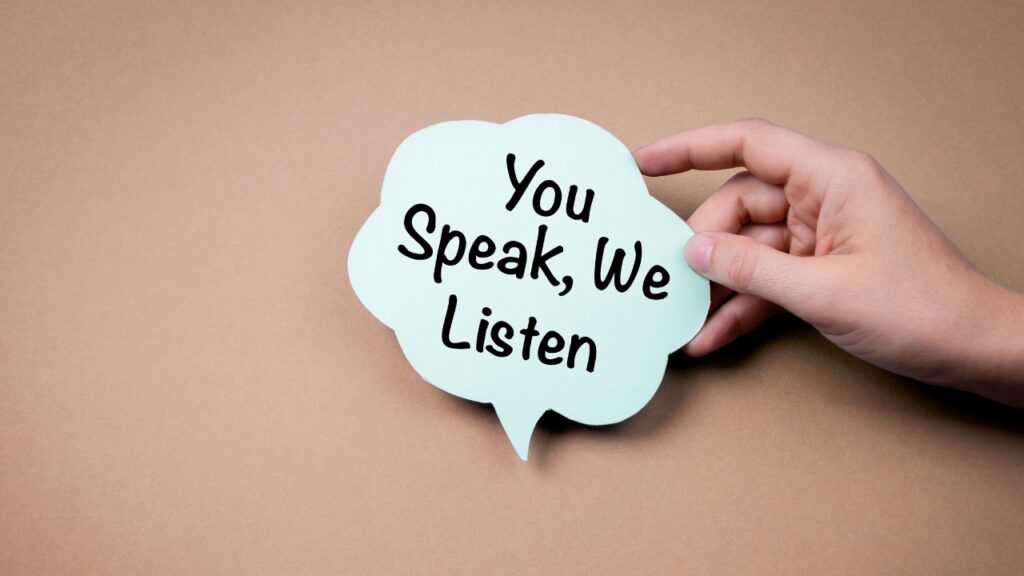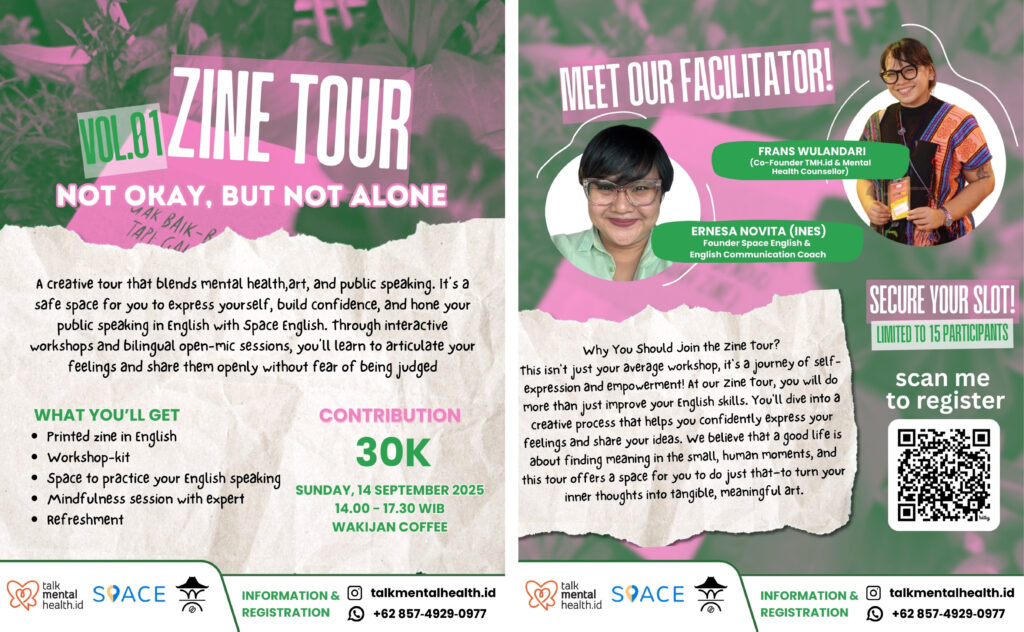Collective Psychology reminds us that when spoken by a public official, words are never just words.
They can shape perception, soothe tensions, or cut deeply. In times of political and social unrest, the language used by those in power carries weight far beyond the immediate moment. A single phrase can frame reality, define legitimacy, and even shape the nation’s emotional landscape.
Recently, Indonesia’s Finance Minister Purbaya Yudhi Sadewa described the 17+8 demands as “suara sebagian kecil masyarakat”—“only the voice of a small fraction of our people” (Kompas, 9 Sept 2025). At first glance, the statement might have been intended to calm the situation. But when examined more closely, it reveals something deeper: a pattern of dismissing voices, minimizing public concerns, and undermining the psychological well-being of both individuals and communities.
This raises critical questions: Was it truly only the voice of a “small fraction”? Or are we being asked to downplay a serious issue that in reality affects millions of people? This article explores how the “small fraction” narrative affects mental health, the dangers of invalidating collective experiences, and the urgent need to build spaces that honor voices rather than dismiss them.
Data vs. Narrative: Numbers Don’t Lie
Indonesia’s Central Bureau of Statistics (BPS) reported that the country’s population reached 279.08 million in 2025. To call a movement “a small fraction” is not just a political remark—it is a narrative strategy designed to strip legitimacy from collective action.
Even if we assume that “only” one percent of the population is dissatisfied or participating in demonstrations, that still equals nearly 2.7 million people. Reducing millions of voices to something negligible is not only mathematically misleading but also psychologically dismissive.
And the numbers don’t stop there. According to BPS (March 2025), 8.47% of Indonesians live below the poverty line. That equals 23.85 million people—a figure that is:
- About the same as the entire population of Victoria, Australia (≈ 23 million).
- Nearly identical to the population of Taiwan (≈ 23.9 million).
- Larger than the entire population of the Netherlands (≈ 17.5 million).
Imagine standing in a crowd of nearly 24 million people. Could we honestly dismiss them as “a small fraction”?
This stark gap between data and narrative shows how easily numbers can be manipulated to minimize reality. And when such dismissive narratives are repeated often enough, they don’t just distort public perception—they also shape how people see themselves, their struggles, and their sense of collective power.
The Psychology of Dismissal: Why It Hurts

When voices are dismissed, individuals don’t just lose political recognition—they also experience psychological invalidation. This invalidation comes with consequences:
- Erosion of Self-Worth
Being told your voice doesn’t matter undermines a basic human need: the need to be heard and acknowledged. - Increased Anxiety and Frustration
Dismissal fuels emotional dysregulation. People may swing between anger and helplessness, unsure if their efforts are worth continuing. - Loss of Trust in Institutions
Repeated invalidation leads to systemic mistrust. Citizens stop believing that institutions are capable of serving them fairly.
What may look like “just words” from those in power often turns into a cycle of distress for those on the ground. The act of minimizing is not neutral—it actively harms.
Collective Psychology: Beyond the Individual
While psychology often focuses on the individual, social unrest reminds us that the mental health of a nation is deeply collective. Collective Psychology refers to the shared emotions, memories, and responses of groups in the face of events that shape their identity.
When entire communities are dismissed, the psychological wounds are not just personal—they are shared. This creates:
- Collective Trauma: When a group experiences systemic dismissal, it plants seeds of long-term resentment and disconnection.
- Collective Dysregulation: Emotional turbulence spreads across communities, fueling instability and mistrust.
- Collective Resistance: Dismissal can also trigger solidarity, where individuals band together to amplify their voices louder than before.
Understanding Collective Psychology helps us see that invalidating citizens’ concerns is not just an individual problem—it weakens the social fabric as a whole.
The Danger of the “Small Fraction” Narrative

Framing citizens’ concerns as the voices of “a small fraction” does more than dismiss—it divides. It suggests that there is a silent, compliant majority whose needs are different, creating an artificial contrast between the “reasonable majority” and the “disruptive minority.”
This narrative is dangerous because it:
- Silences Legitimate Concerns: Suggesting that only a few care delegitimizes widespread frustration.
- Normalizes Invalidation: Once dismissal becomes normalized, other critical voices—whether about healthcare, education, or mental health—risk being ignored too.
- Undermines Social Cohesion: Instead of fostering dialogue, it deepens polarization.
For a democracy to thrive, it cannot afford to treat its citizens’ voices as disposable background noise.
From Dismissal to Dialogue: A Mental Health Perspective
Healthy societies do not fear voices—they listen to them. To move away from the harm of dismissal, we need to adopt practices rooted in mental health awareness:
- Normalize Listening Without Judgment
Listening is not agreement—it is acknowledgment. A culture of listening strengthens resilience. - Validate Emotions Collectively
Validation is not about agreeing with every demand but recognizing that frustration is real and legitimate. - Create Safe and Inclusive Spaces
Communities need spaces—both physical and digital—where voices can be expressed without fear of ridicule or repression.
When dialogue replaces dismissal, both individuals and societies experience psychological healing.
A Call from Talk Mental Health ID
At Talk Mental Health ID, we believe that every voice matters. No voice is too small to be heard.
✨ Let’s normalize a culture of listening without belittling.
✨ Let’s validate each other’s feelings, because that’s where collective strength begins.
✨ Let’s care for mental health—not only individually, but as a nation.
Zine Tour Volume 1: Responding to Unrest with Creativity

At Talk Mental Health ID (TMH.id), we believe every voice matters. No one is too small to be heard. In response to the ongoing political and social unrest, we are launching Zine Tour Volume 1.
The Zine Tour is more than just a publication—it is a moving space. Through zines, discussions, and collective gatherings, we invite young people to read, reflect, and explore how mental health is deeply connected to the social and political realities around us.
What You’ll Experience
Together with TMH.id, Space English, and Wakijan Coffee, you’ll get to:
🎨 Journal with our interactive zine.
🗣️ Boost your public speaking & storytelling skills in English.
💬 Share your thoughts and feel heard in a supportive group.
🧘 Join a mindfulness session with an expert to process your emotions.
You’ll connect with new friends, share your story, and turn your thoughts into art through zine-making. We’ll also help you build confidence by practicing public speaking and celebrating your progress after.
Event Details
🗓️ Save the Date: Sunday, September 14, 2025
📍 Location: Wakijan Coffee
💰 Your investment in yourself: only 30K
This initiative is not only about consuming information; it is about creating conversations—spaces that are both critical and safe, where voices are amplified, validated, and respected. By transforming frustration into creativity, Zine Tour Volume 1 aims to shift the narrative from dismissal to dialogue, and from silence to meaningful participation.
Voices as the Foundation of Collective Psychology
When voices are dismissed, it is not merely individuals who are silenced—it is the collective spirit of a nation that suffers. The “small fraction” narrative is more than a political phrase; it is a psychological strategy that undermines recognition and legitimacy.
But Collective Psychology reminds us of the opposite truth: when voices come together, no fraction is ever truly small. Every voice matters, and every voice contributes to the shared mental health of society.
Through listening, validation, and creative initiatives like TMH.id’s Zine Tour Volume 1, we can move from a culture of dismissal toward one of recognition, healing, and collective strength.
✨ Download our zine for free here: talkmentalhealthid.org/freebies
✨ Join the Zine Tour Volume 1: Responding to Unrest with Creativity: Instagram Event Info
Together, let’s transform frustration into dialogue, and silence into meaningful change.




